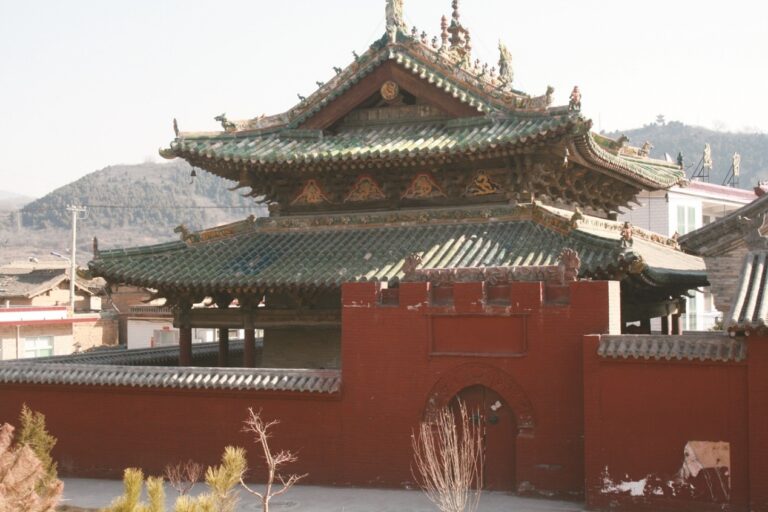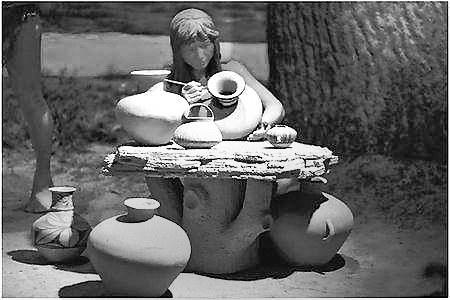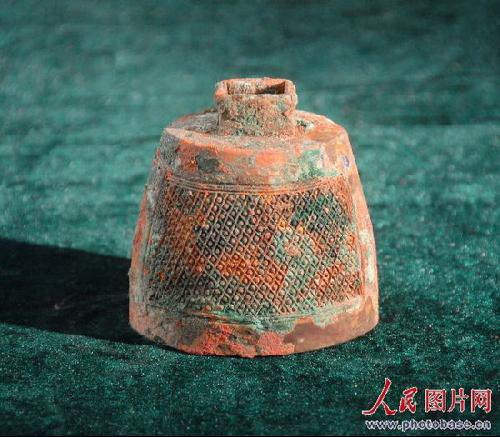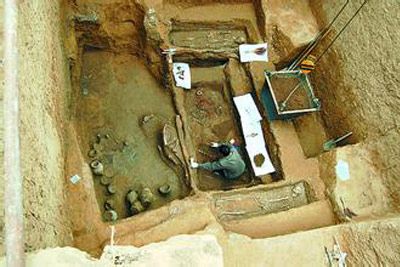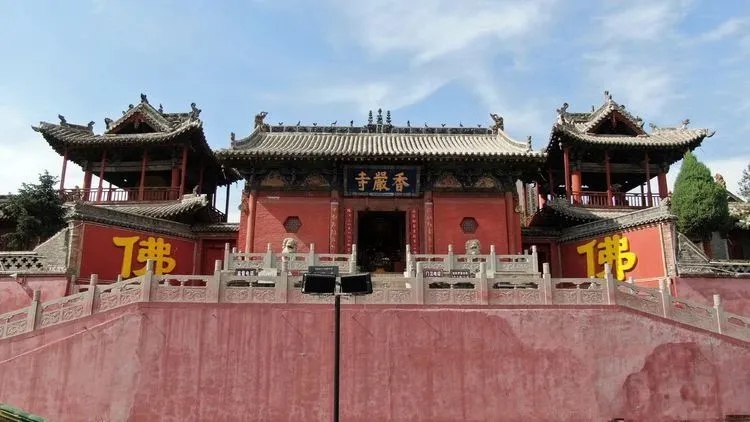Uncover the Secrets of Baoding Huai Army Guild Hall: A Must-Visit Heritage Site in Baoding
An Essential Guide to Visiting Baoding Huai Army Guild Hall
In This Guide
- An Essential Guide to Visiting Baoding Huai Army Guild Hall
- The Rich History of Baoding Huai Army Guild Hall
- Main Highlights: What to See at Baoding Huai Army Guild Hall
- Planning Your Visit: A Practical Guide
- Tickets, Hours, and Booking
- How to Get There
- Local Cuisine and Accommodation
- Frequently Asked Questions
- Final Thoughts on Your Trip
Nestled within the historical heart of Baoding, the Baoding Huai Army Guild Hall (淮军公所) stands as a testament to China’s rich military and architectural heritage. Constructed in 1888 under the auspices of Li Hongzhang, a prominent statesman of the late Qing dynasty, this grand structure originally served as a memorial dedicated to the valor of the Huai Army, which played a pivotal role in several critical military campaigns of the time. Spanning over 30,000 square meters, the hall boasts an impressive blend of Huizhou and northern architectural styles, making it one of the most well-preserved examples of Qing dynasty architecture in northern China.
Visitors to the guild hall are welcomed by its striking main building, which houses one of the largest enclosed opera stages from the Qing era still in existence today. This historical site not only offers insights into the military history of the Huai Army but also serves as a cultural hub, showcasing the traditional Chinese theatrical arts through various exhibitions and performances. The surrounding gardens, meticulously designed, provide a tranquil escape where guests can immerse themselves in the beauty of classical Chinese landscaping.
Whether you’re a history enthusiast, an architecture aficionado, or simply seeking a unique cultural experience, the Baoding Huai Army Guild Hall offers a captivating glimpse into a bygone era, inviting travelers to explore its storied past and appreciate its artistic significance.
The Rich History of Baoding Huai Army Guild Hall
The Baoding Huai Army Guild Hall, also known as the Huai Army Zhao Zhong Shrine and Guild Hall, has a rich history that intertwines military, architectural, and cultural narratives of late imperial China. It was commissioned in 1888 by Li Hongzhang, the Governor-General of Zhili and a prominent military leader during the Qing Dynasty. Li established the hall to honor the soldiers of the Huai Army, a military force he had organized to suppress the Taiping Rebellion and other uprisings during the tumultuous period of the late 19th century.
The Huai Army itself was formed in 1862 as a response to the growing threats faced by the Qing government, particularly the Taiping Rebellion. Initially comprising about 6,500 troops recruited from the Huai River region, the army grew in strength and became a significant military force in the late Qing era. However, the Huai Army began to decline after its defeat in the First Sino-Japanese War (1894-1895), leading to a gradual decrease in its influence.
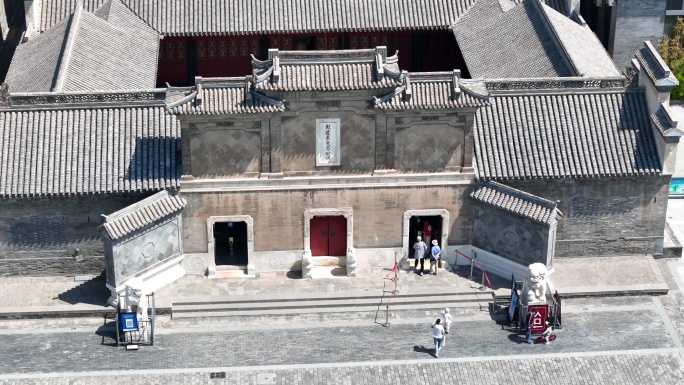
Baoding Huai Army Guild Hall.
Covering over 30,000 square meters, the guild hall complex is notable for its architectural grandeur, combining elements of Huizhou architecture—a style characterized by intricate woodwork and decorative carvings—with northern Chinese architectural features. The main structure, an impressive theater, is recognized as the largest existing closed theater from the Qing Dynasty in China. This architectural blend not only signifies the cultural exchange between northern and southern styles but also reflects the historical context of the time, where military and cultural identities were being negotiated.
The shrine within the complex was specifically established to commemorate the fallen soldiers who died in battles and from the hardships endured during their service. It served as a site for annual memorial ceremonies, recognizing the sacrifices made by these soldiers. After Li Hongzhang’s death in 1901, the hall underwent changes, including the transformation of its east wing into the Li Wenzhong Shrine, further solidifying its role in preserving the legacy of significant figures in Chinese military history.
In 2013, the Baoding Huai Army Guild Hall was designated as a key cultural relic under national protection, highlighting its historical and artistic significance. Today, it operates as a museum, showcasing both its architectural splendor and the rich cultural heritage of Chinese opera, offering exhibitions that delve into the history of the Huai Army and its impact on regional culture. Visitors can explore the beautifully preserved structures and gardens, immersing themselves in a unique blend of history, art, and performance that continues to resonate with the cultural landscape of Baoding.
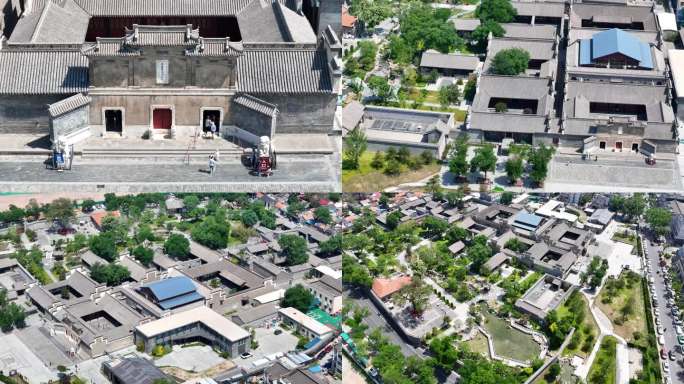
Baoding Huai Army Guild Hall.
Main Highlights: What to See at Baoding Huai Army Guild Hall
Nestled in the historic city of Baoding, the Huai Army Guild Hall, also known as the Huai Army Memorial Hall, is a captivating testament to China’s military heritage and architectural grandeur. Built in 1888 under the auspices of Li Hongzhang, a prominent Qing Dynasty statesman, this significant structure spans over 30,000 square meters, making it one of the largest and best-preserved memorials dedicated to the Huai Army.
The architecture of the Huai Army Guild Hall is a seamless blend of southern Huizhou and northern styles, showcasing the unique characteristics of Qing Dynasty design. Visitors will be struck by the exquisitely intricate wood, brick, and stone carvings that adorn the buildings, reflecting the artistry of the era. The main attraction, a grand opera house, is the largest of its kind still standing in China, serving as a vibrant center for cultural performances and exhibitions.
The Hall’s layout is thoughtfully organized into distinct sections, including the worship area surrounded by high walls, traditional northern courtyard homes, and beautifully landscaped gardens. These spaces not only enhance the aesthetic appeal but also provide a serene environment for reflection and appreciation of the site’s historical significance.
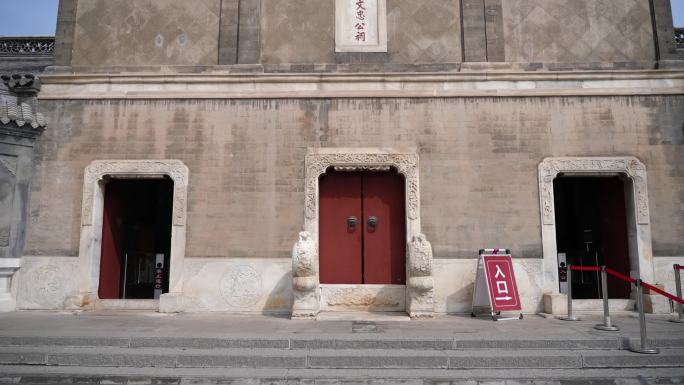
Baoding Huai Army Guild Hall.
Inside the museum, guests can explore a variety of exhibitions that delve into the architectural evolution, the history of the Huai Army, and local operatic traditions. The displays are meticulously curated to provide insights into the lives of the soldiers memorialized here, particularly those who fell during the suppression of the Taiping and Nian rebellions.
For anyone interested in Chinese history, architecture, or performing arts, a visit to the Huai Army Guild Hall is an enriching experience that promises to transport you back to a pivotal moment in China’s past. With a recommended visit duration of around one hour, it’s a perfect stop for those embarking on a cultural exploration of Baoding.
Planning Your Visit: A Practical Guide
Practical Guide to Visiting Baoding Huai Army Guild Hall
Overview
Nestled in the historical city of Baoding, the Huai Army Guild Hall, officially known as the Baoding Huai Army Zhaozhong Temple and Guild Hall, serves as a remarkable testament to China’s architectural and military history. Constructed in 1888 under the direction of Li Hongzhang, a prominent Qing dynasty statesman, this site commemorates the soldiers of the Huai Army who fought valiantly during the tumultuous periods of the Taiping Rebellion and the Boxer Rebellion.
Location and Accessibility
The Huai Army Guild Hall is located at 346 Xinhua Road, 90 meters south of the intersection with Tangjia Hutong in the Lianchi District of Baoding. It is easily accessible via public transportation, including buses and taxis, making it a convenient stop for both local visitors and those traveling from Beijing, which is approximately a 40-minute high-speed train ride away.
Visiting Hours and Admission
The site is open daily from 8:30 AM to 6:00 PM. Admission prices start at around TWD 108 (approximately 4 USD), providing access to the extensive grounds and exhibits. It’s advisable to check for any special promotions or temporary free entry periods, as the site has been known to offer free admissions for limited durations post-renovation.
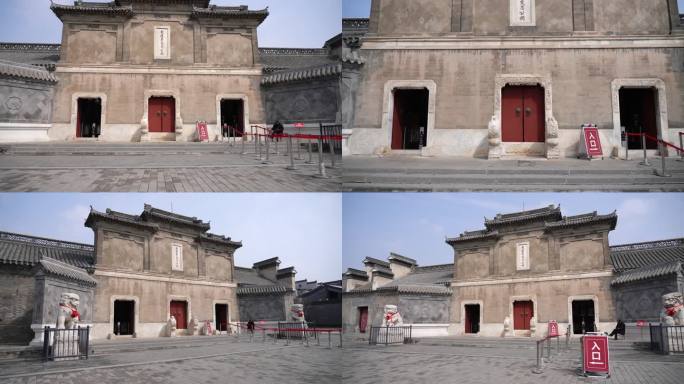
Baoding Huai Army Guild Hall.
Recommended Duration
Plan to spend at least one hour exploring the Huai Army Guild Hall, though history enthusiasts may wish to linger longer to fully appreciate the intricate architectural features and the rich displays of cultural artifacts. The site features a unique blend of Huizhou architecture and Northern Chinese styles, showcasing stunning wooden carvings and stone sculptures.
Exhibits and Features
Within the guild hall, the main attraction is the grand theater, recognized as the largest surviving closed theater from the Qing dynasty. This impressive structure is not only an architectural marvel but also a cultural hub where traditional Chinese operas are performed, allowing visitors to experience the vibrant local arts scene.
In addition to the theater, the museum hosts several exhibitions that delve into the history of the Huai Army, the architectural significance of the hall, and the evolution of Chinese opera. Don’t miss the opportunity to explore the beautifully landscaped gardens that surround the complex, providing a serene backdrop for reflection and photography.
Visitor Tips
– Reservations: If planning to visit during peak times or for specific performances, consider making a reservation in advance to ensure entry and secure good seats.
– Photography: This site is incredibly photogenic, especially the theater and its surrounding gardens. Be sure to bring your camera to capture the stunning architecture and intricate details.
– Local Cuisine: After your visit, indulge in Baoding’s renowned local delicacies, such as donkey meat sandwiches, which are popular among both locals and tourists.
– Nearby Attractions: While in Baoding, make sure to explore other historical sites such as the Daci Pavilion and the Ancient Lotus Pool, both conveniently located nearby.
Conclusion
A visit to the Baoding Huai Army Guild Hall is not just a journey through an important historical site; it’s an immersive experience into the cultural fabric of late Qing dynasty China. With its rich history, stunning architecture, and cultural performances, this site is a must-see for anyone traveling to Baoding. Whether you are a history buff or simply looking to explore the beauty of traditional Chinese culture, the Huai Army Guild Hall will leave you with lasting memories.
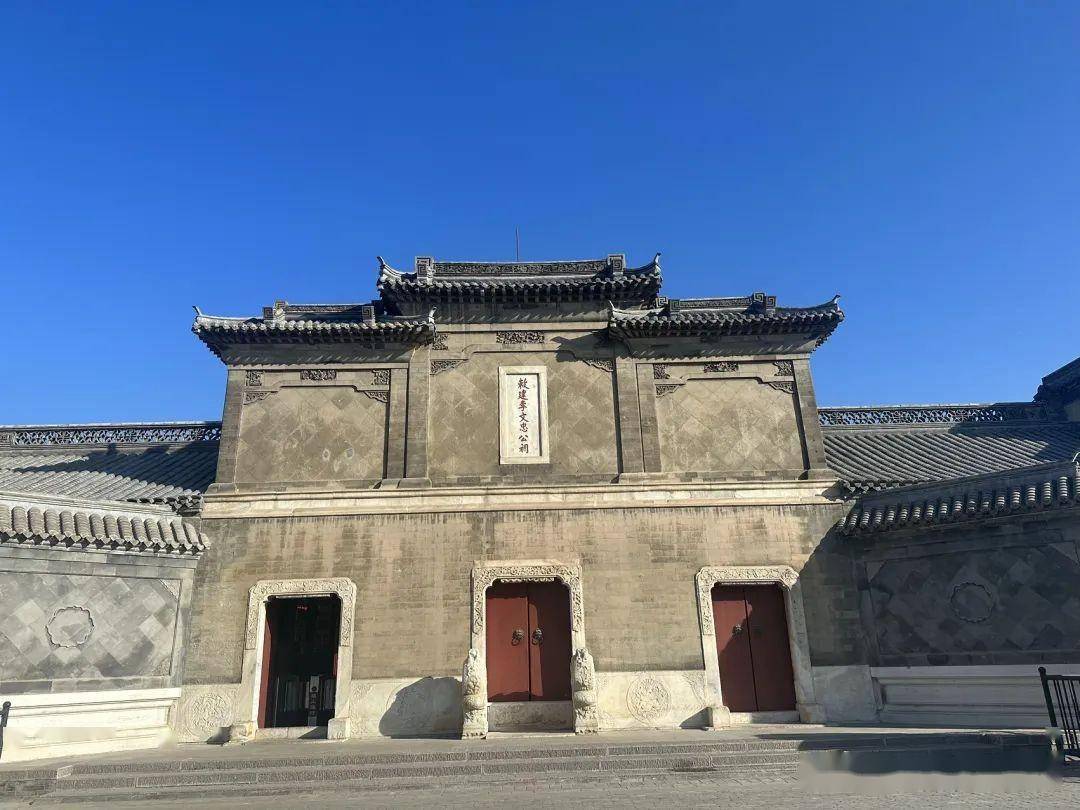
Baoding Huai Army Guild Hall.
Tickets, Hours, and Booking
Visitors to the Baoding Huai Army Guild Hall (淮军公所) can expect a blend of historical significance and cultural richness. This remarkable site not only serves as a museum but also stands as a tribute to the Huai Army’s legacy, making it a must-see for anyone exploring Baoding.
Ticket Information
-
Admission Price: Tickets start at approximately TWD 108 (Taiwan Dollars). However, recent promotions offer free entry during the museum’s trial operation phase, which might vary, so it’s wise to check for updates before your visit.
-
Booking: Tickets can be reserved through various travel platforms or directly at the venue. Online reservations are recommended, especially during peak tourist seasons, to ensure availability.
-
Opening Hours: The guild hall operates from 8:30 AM to 6:00 PM. It’s advisable to arrive a bit earlier to fully enjoy the exhibits and the surrounding gardens.
-
Recommended Visit Duration: Plan to spend at least one hour to explore the architectural wonders and exhibitions, including the famous Qing Dynasty theater, which is one of the largest preserved closed theaters in China.
-
Contact Information: For inquiries or further assistance, you can reach them at +86 0312 5915860.
Whether you’re an architecture enthusiast, a history buff, or simply looking for a unique cultural experience, the Baoding Huai Army Guild Hall promises to be an enlightening addition to your travel itinerary.
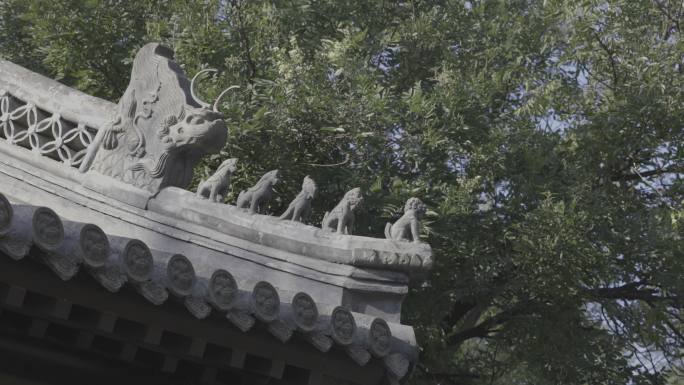
Baoding Huai Army Guild Hall.
How to Get There
Baoding, a city rich in history and culture, offers various transportation options to make your visit to the Baoding Huai Army Guild Hall (淮军公所) seamless and enjoyable. Whether you are arriving from nearby cities or navigating within Baoding, here’s a comprehensive guide to help you get around.
Getting to Baoding
By Train:
The most efficient way to reach Baoding is by high-speed train. The city is well-connected to major cities like Beijing and Tianjin. The Baoding Railway Station, located conveniently in the city center, is the primary hub for both high-speed and regular trains. From Beijing, the journey takes approximately 40 minutes, making it a perfect day trip for those staying in the capital.
By Bus:
Long-distance buses are another viable option, connecting Baoding to various cities in Hebei Province and beyond. The Baoding Long-distance Bus Station offers regular services to and from major cities. Check the schedules in advance, as frequency may vary.
By Car:
For those preferring the flexibility of driving, renting a car is a convenient choice. The city is accessible via major highways, including the G4 Beijing-Hong Kong-Macau Expressway. Several car rental services are available at the train station and airport.
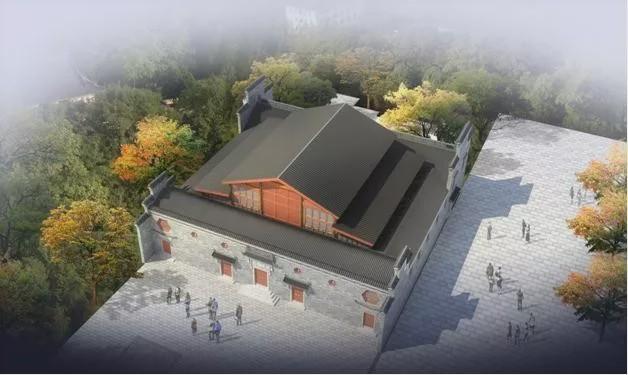
Baoding Huai Army Guild Hall.
Local Transportation
Public Transit:
Baoding has a reliable public bus system that covers most areas of the city, including the Huai Army Guild Hall. Buses are affordable and frequent, making them a practical choice for navigating the city. Be sure to check the bus routes and schedules for the best options to reach your destination.
Taxis and Ride-Hailing Services:
Taxis are readily available throughout Baoding and can be hailed on the street or booked through mobile apps. Services like Didi Chuxing (similar to Uber) are also popular and can provide a convenient way to get around, especially if you prefer door-to-door service.
Walking:
The Huai Army Guild Hall is situated in a scenic area, and many visitors opt for a leisurely walk to explore the surroundings. The hall’s architecture and nearby attractions, like the ancient Lotus Pool, are best appreciated on foot. The city center is compact, allowing for easy exploration.
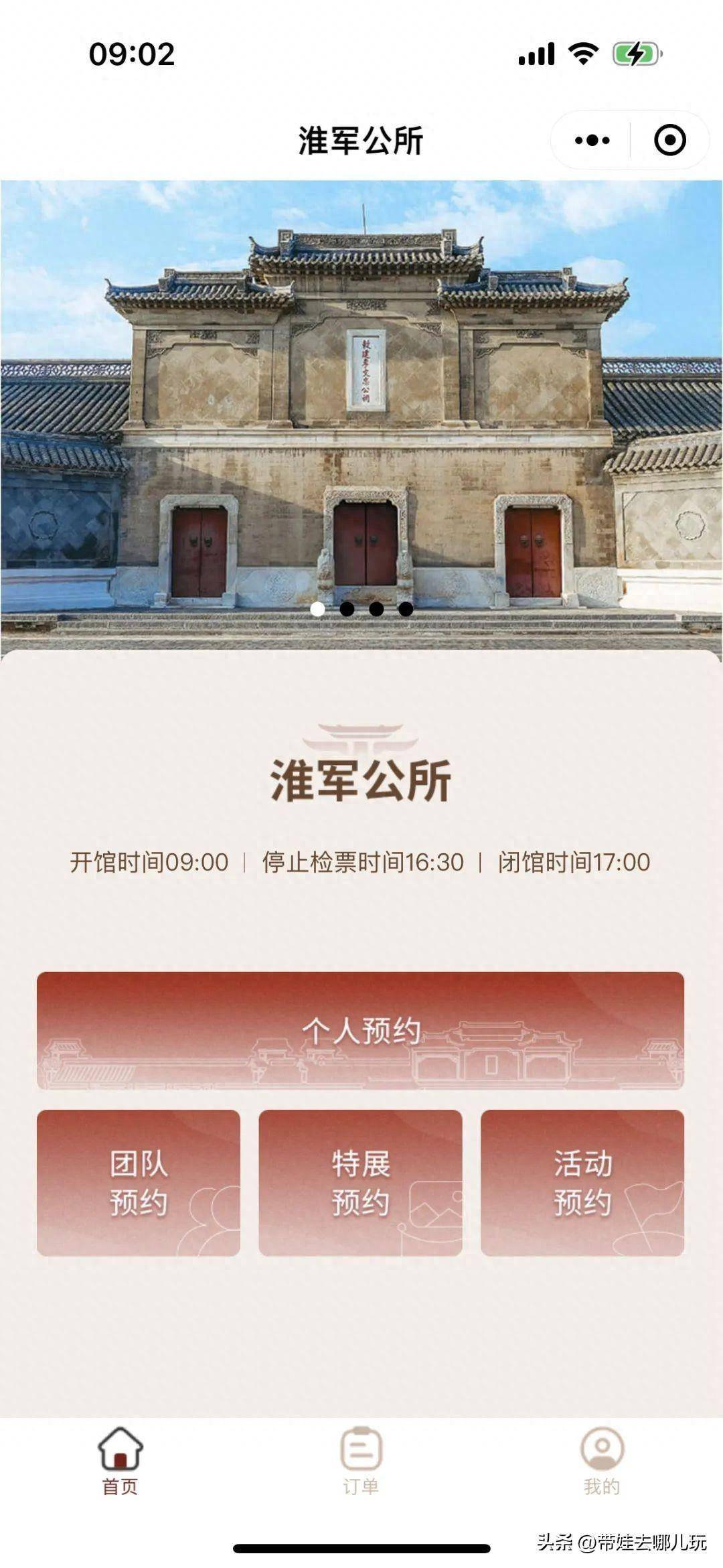
Baoding Huai Army Guild Hall.
Visiting the Huai Army Guild Hall
The Huai Army Guild Hall is located at 346 Xinghua Road, approximately 90 meters south from the intersection with Tangjia Hutong. Plan to spend around an hour at the hall to fully appreciate its historical significance and architectural beauty. The site is well-marked, and locals are friendly, often willing to offer directions if needed.
Tips for Travelers
- Language: While many locals may speak basic English, having a translation app or a phrasebook can be helpful, especially when using public transport or asking for directions.
- Cash and Payment: Although mobile payment options are prevalent in China, it’s advisable to carry some cash for small purchases, particularly in local markets or smaller establishments.
- Timing: If you plan to visit during peak hours, consider allowing extra time for transit, as buses and taxis can become crowded.
By familiarizing yourself with these transportation options, you can easily navigate Baoding and make the most of your visit to the Baoding Huai Army Guild Hall and its surrounding attractions.
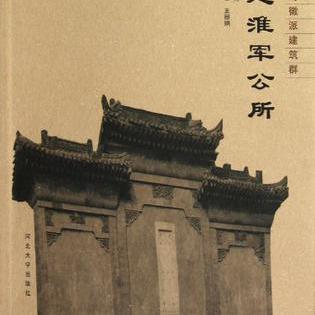
Baoding Huai Army Guild Hall.
Local Cuisine and Accommodation
When visiting the Baoding Huai Army Guild Hall, food and accommodation options abound, allowing travelers to immerse themselves fully in the local culture and history.
Dining Options
1. Yongmao Donkey Meat Restaurant (永茂驴肉)
This local favorite is renowned for its donkey meat dishes, particularly the donkey meat fire buns, which are a must-try for any visitor. The restaurant often sees long queues, but the wait is well worth it for the mouthwatering flavors. The savory, tender meat served in freshly baked buns is a delightful introduction to Baoding’s culinary scene.
2. Baoding Banquet (保定宴)
For a more immersive dining experience, consider the Baoding Banquet, which combines exquisite local dishes with cultural performances. This venue offers a unique blend of gastronomy and entertainment, showcasing the rich traditions of Baoding through its cuisine and arts.
3. Flowering Steakhouse (花盛牛排西餐厅)
If you’re in the mood for Western cuisine, this steakhouse provides a refreshing alternative. With a range of steak options and a comfortable atmosphere, it caters to those looking for something different amidst their exploration of local delicacies.
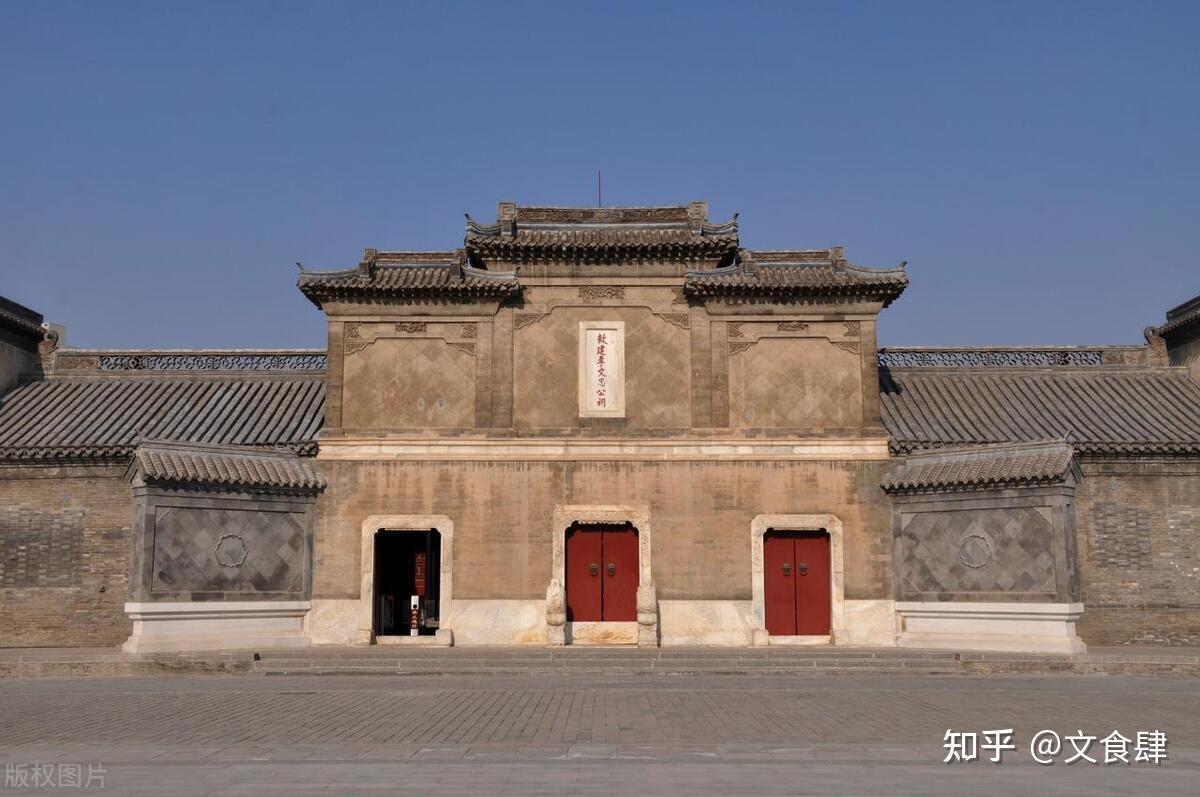
Baoding Huai Army Guild Hall.
4. Huai Army Guild Hall Café
Situated within the complex, this café offers a cozy spot to relax with a cup of tea or coffee after touring the guild hall. It’s a perfect place to unwind and reflect on the architectural beauty and historical significance of the site.
Accommodation Options
1. Baoding Hilton Garden Inn (保定希尔顿欢朋酒店)
Located near the city center, this hotel combines modern amenities with comfort, making it an excellent choice for travelers. The hotel features spacious rooms, a fitness center, and a restaurant, ensuring a pleasant stay close to major attractions, including the Huai Army Guild Hall.
2. Tongfu Restaurant Hotel (保定同福酒楼)
For those who want to experience local hospitality, this hotel offers reasonably priced accommodation with excellent dining options. The restaurant specializes in traditional Baoding dishes, allowing guests to indulge in local flavors without venturing far.
3. Shunxin Inn (保定顺欣旅馆)
A budget-friendly option, Shunxin Inn provides clean and simple accommodations. Its convenient location makes it easy to explore the city’s attractions, including the guild hall and beyond.
4. City Home (城市之家酒店)
This hotel offers a comfortable stay with a modern touch, featuring well-furnished rooms and good service. It’s a great base for exploring Baoding, providing easy access to public transport and nearby attractions.
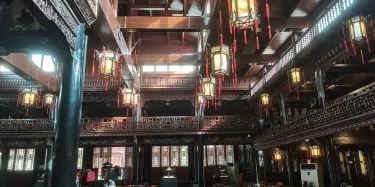
Baoding Huai Army Guild Hall.
With a variety of dining and accommodation choices, your visit to the Baoding Huai Army Guild Hall can be both culturally enriching and comfortable, ensuring a memorable experience in this historical city.
Frequently Asked Questions
Frequently Asked Questions about Baoding Huai Army Guild Hall
-
What is the Baoding Huai Army Guild Hall?
The Baoding Huai Army Guild Hall, officially known as the Huai Army Zhao Zhong Temple and Guild Hall, is a historical complex built in 1888 to honor the fallen soldiers of the Huai Army during significant conflicts in Chinese history. It showcases a blend of Huizhou and northern architectural styles, making it a unique cultural landmark. -
Where is the Huai Army Guild Hall located?
The hall is located at 346 Xinghua Road, 90 meters south, in the Lianchi District of Baoding City, Hebei Province, China. -
What are the opening hours?
The Huai Army Guild Hall is open daily from 8:30 AM to 6:00 PM. It’s advisable to check for any special holiday hours or events that may affect access. -
How much does it cost to enter?
Admission fees start at roughly TWD 108 (around USD 15). However, there are promotional periods where entry may be free or discounted, so it’s best to check ahead of your visit. -
What can visitors expect to see at the hall?
Visitors can explore the expansive grounds, which include the main hall, a large traditional theater, and various gardens. The site features intricate architectural details, exhibitions on Huai Army history, and showcases of traditional Chinese opera. -
How long should I plan to spend at the Huai Army Guild Hall?
A typical visit lasts about one hour, but history enthusiasts or those interested in architecture might want to allocate more time to fully appreciate the site’s offerings. -
Is there any public transportation available to reach the hall?
Yes, the hall is easily accessible by public transportation. Local buses and taxis regularly service the area, and it’s a short walk from nearby attractions, making it ideal for a day of exploring Baoding. -
Are there any guided tours available?
Yes, guided tours are often available, providing deeper insights into the history and significance of the Huai Army Guild Hall. It’s recommended to book in advance to ensure availability, especially during peak tourist seasons.
Final Thoughts on Your Trip
Visiting the Baoding Huai Army Guild Hall is not just a journey through an architectural marvel; it is a deep dive into the rich tapestry of Chinese history and culture. This extraordinary site, blending Southern Hui-style architecture with Northern elements, stands as a testament to the military and cultural significance of the Huai Army during the late Qing Dynasty. As you explore the intricately designed halls, the grand theater, and the serene gardens, you are enveloped in stories of bravery, artistry, and resilience.
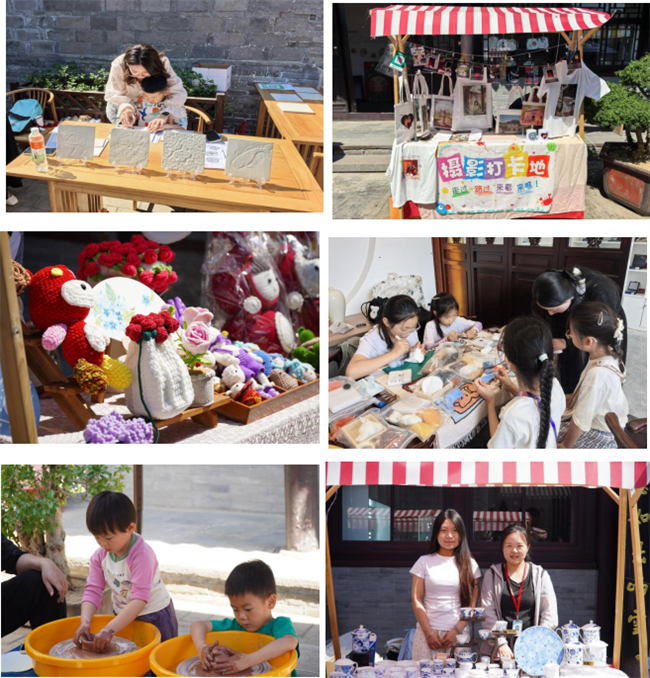
Baoding Huai Army Guild Hall.
The recent restoration of the Guild Hall and its transformation into a museum ensures that both locals and international visitors can appreciate the historical narrative and artistic heritage it embodies. The knowledgeable guides and engaging exhibitions provide an enriching experience that captivates the imagination and fosters a deeper appreciation for China’s vibrant cultural landscape.
Whether you are an avid history buff, an architecture enthusiast, or simply seeking a unique and enlightening travel experience, the Baoding Huai Army Guild Hall promises to leave an indelible mark on your journey. Embrace the opportunity to walk through history and witness the confluence of art, culture, and valor that defines this extraordinary landmark. Plan your visit today and become part of the ongoing story that this magnificent site has to tell.
